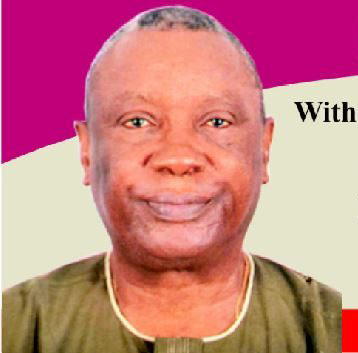
From last week, continues the narrative on the life of the Nigerian journalist and why, unlike a civil servant who retires after the age of 60 years or after 35 years in service, he has no retirement age. So, instead of life after retirement for journalists, the appropriate topic to write on should be: ‘Life when journalists stop going to offices’.
I remember a refrain that says: Old soldiers never die, they simply fade away. It originates from a stanza from the soldiers’ folklore song: Old Soldiers Never Die. In the United States, the phrase was used by General Douglas MacArthur in his April 19, 1951 farewell address to the U.S. Congress (which has become known as the “Old Soldiers Never Die” speech).
Journalists are like old soldiers. They don’t really retire, they just fade away when the time comes. They are active till the end if their health can sustain them. If journalists retire why should Chief Olusegun Osoba at 85, the twice elected governor of Ogun State, be reporting till today? If journalists retire why should veterans like Chief Tola Adeniyi, Sam Omatseye, Dan Agbese, Dele Sobowale, Lanre Idowu, Reuben Abati, Magnus Ibe, Bunmi Sofola, Dupe Ajayi, Medline Tador, Comfort Obi, Tunde Fagbenle, Azuibike Ishiekwene, Kayode Komolafe, Yakubu Mohammed, Ray Ekpu, Soji Akinrinade, Lade Bonuola, Bayo Osiyemi, Ayo Akinkuotu, Dare Babarinsa, Dayo Sobowale, Martins Oloja, Muyiwa Adetiba and many others still be writing columns? The truth is that journalists have an active mind. They may not be rich but they perform essential services to the world.
An average journalist has a little knowledge of everything. Although his services may not be appreciated but he or she takes satisfaction in rendering services to the world. I am proud to be a journalist.
But when we stop going to offices, we still take part in communal services to the society either in the church, mosque, communities where we live or in society generally. Some write books and hardly can you find a journalist who does not read books.
In the last two decades, technology has sparked seismic shifts in journalism. Three developments stand out: the internet, mobile devices and social media. Together, they have changed the accessibility, creation and delivery of journalism. Today, almost every adult in Nigeria connects to the internet and social media through a digital service. Their extensive use makes it easy to forget that these technologies are relatively new to our daily lives.
The old journalism that we grew up with is more or less dead, thanks to advancements in technology; a new branch has emerged—digital journalism.
New organisations now use multiple media platforms to publish content online, including websites and blogs, mobile apps, podcasts, data analysis and visualisations, photos and videos, social media, augmented reality and interactive web experiences.
Digital media has created exciting opportunities for journalists to produce and share their stories.
In Nigeria today, social media has become a powerful source of digital news. It cannot be ignored.
The widespread consumption of social media means journalists need the skills to connect with audiences on the most popular platforms; report in real-time on the various social platforms–this involves critical and creative thinking about the most appropriate media for each platform and build a personal brand on social media.
With this development, an active journalist must adapt to this new technology and it is impossible to retire as a journalist. Journalism is a developing profession. The public’s growing preference for digital media means that digital journalism skills are now imperative. Journalists must be able to strategically use digital storytelling tools to connect with audiences on various platforms. This means thinking critically and creatively about the best forms of media to serve the target audience.
Since most journalists can’t take part in the only lucrative business in the country now-party politics-they should exploit the opportunities offered by digital journalism. The opportunities are very wide. As a matter of fact, some journalists have seized on the opportunities, some of them are now bloggers and they do it from the comfort of their homes. Life itself is a continuity. You cannot withdraw from life as long as your health can still sustain you.
To be concluded
•Teniola, a former director at the Presidency, wrote from Lagos.
The post Life of a journalist after retirement(3), by Eric Teniola appeared first on Vanguard News.








